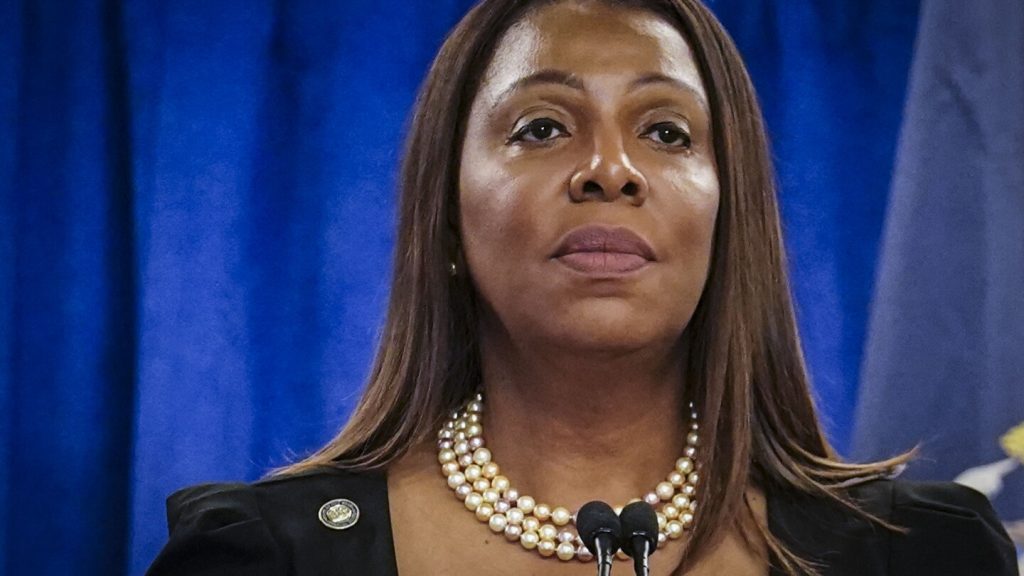In a recent legal battle, Nassau County, located outside of New York City, has lost its bid to prevent the state from taking legal action against its ban on women’s and girls teams that include female transgender players. State Attorney General Letitia James hailed the decision as a victory for justice and the rule of law, urging the county to rescind the ban that she has criticized as “transphobic” and in violation of anti-discrimination laws. The county, led by Executive Bruce Blakeman, has vowed to appeal the decision, arguing that any state action against the ban would be discriminatory and a violation of the equal protection clause of the U.S. Constitution.
The legal battle began when James issued a “cease and desist” letter demanding Nassau County to revoke the ban, leading Blakeman to file a federal lawsuit seeking to affirm the ban’s legality and prevent James from taking further action. James’ office rejected the county’s claims, stating that the lawsuit lacked legal and factual support and emphasizing the importance of equal protection under the law as guaranteed by the Fourteenth Amendment. Judge Nusrat Choudhury denied the county’s request for a temporary restraining order against James’ office but did not make a ruling on the legality of the ban or James’ motion to dismiss the lawsuit.
The ban issued in February by Blakeman affects over 100 public facilities in Nassau County and prohibits any female sports organizations that accept transgender women or girls from using county-owned parks and fields. This move has sparked controversy and legal challenges, including a case from a local women’s roller derby league seeking to invalidate the ban. Similar actions have been taken in other Republican-led cities and states, with officials arguing that allowing transgender athletes to compete alongside women and girls would lead to discrimination and violation of their constitutional rights. Despite the legal setbacks, the county remains firm in its stance in defense of the ban.
James’ office has not disclosed its future plans regarding the ban, stating that it will review the court’s decision before taking any further action. The county’s lawsuit seeking to prevent James from taking legal action against the ban has been dismissed, prompting uncertainty about the next steps in this ongoing legal dispute. As the debate over transgender inclusion in sports continues to divide communities and policymakers, the outcome of this case could have broader implications for the rights and inclusion of transgender individuals in athletic competitions. The legal battle between Nassau County and the state of New York underscores the complex and contentious nature of addressing transgender rights within the realm of sports and highlights the challenges of navigating the intersection of civil rights, legal protections, and athletic competition.


